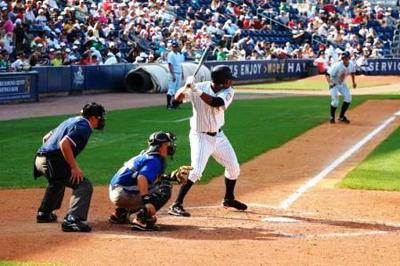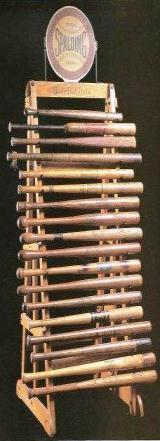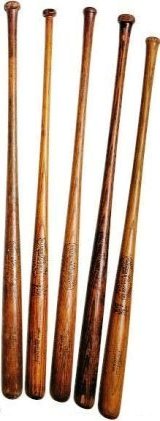Batters interference
by Justin C.
(Suffolk, VA)

Batter is entitled to the batter's box, catcher must work around him, if he stays stationary.
Justin asked: We had a situation this past spring where a baserunner was attempting to steal third.
The catcher comes up and throws down to third only for the ball to hit the batter.
The call made in that game was that it was a dead ball, the batter was out, and the runner went back to second.
Today we had the same situation but this time when the catcher threw the ball it hit the batters helmet and went over the fence out of play.
This umpire did not make a call at all and allowed the baserunner to stay on third base. What is the correct ruling on this?
Rick answered:Justin, thank you for your question.
Rule 6.06...The batter is out for illegal action when -
(c) He interferes with the catchers fielding or throwing by stepping out of the batter's box or making any other movement that hinders the catcher's play at home base. Exception: Batter is not out if any runner attempting to advance is put out, or if runner trying to score is called out for batter's interference.
Rule 6.06 (c) Comment: If the batter interferes with the catcher, the plate umpire shall call interference (offensive interference) and all runners must return to the last base that was, in the judgment of the umpire, legally touched at the time of the interference.
As you look at the image above, the batter is entitled to the batter's box. If he stays in the box and makes no unusual movements that would be considered a hindrance to the catcher, it is the catcher's responsibility to clear himself to make that throw.
Because that is the situation, catchers are taught to step behind a right handed batter to make their throw. It is one of the reasons many consider stealing third base a little easier than stealing second.
Last springs call, for the umpire to call a dead ball, call the batter out and return the runner, the batter would have needed to make some sort of effort that, in the umpire's discretion, interfered in some way with the catcher's ability to make that throw. If that occurred, then the call was correct, batter out and runner returned.
If, however, the batter simply stood his ground in the box and the catcher attempted to throw through him, thus hitting him, there would be no interference and the runner stays at third base.
All decided by whether the umpire felt the batter intentionally positioned himself in the line of the throw, rather than the catcher did not clear himself to make that throw.
Your most recent play is also determined on what the umpire felt the batter did, or did not do.
Since the umpire made no call and let the runner stay at third, I would assume he felt the batter did nothing to interfere, just stood his rightful ground in the box.
This call as made carries an additional ruling.
If the umpire did not call a dead ball for interference, then the ball coming off the batter's helmet is still a live ball. It only becomes dead when it exits the field, thus there should have been an award of home plate for the runner at third, just like on a ball thrown by any fielder that goes out of play.
In these situations, everything revolves around what the batter, and the catcher, did or did not do. It all plays out from there.
Yours in baseball,
Rick
Click here to post comments
Join in and write your own page! It's easy to do. How? Simply click here to return to Ask The Baseball Coach.
|



